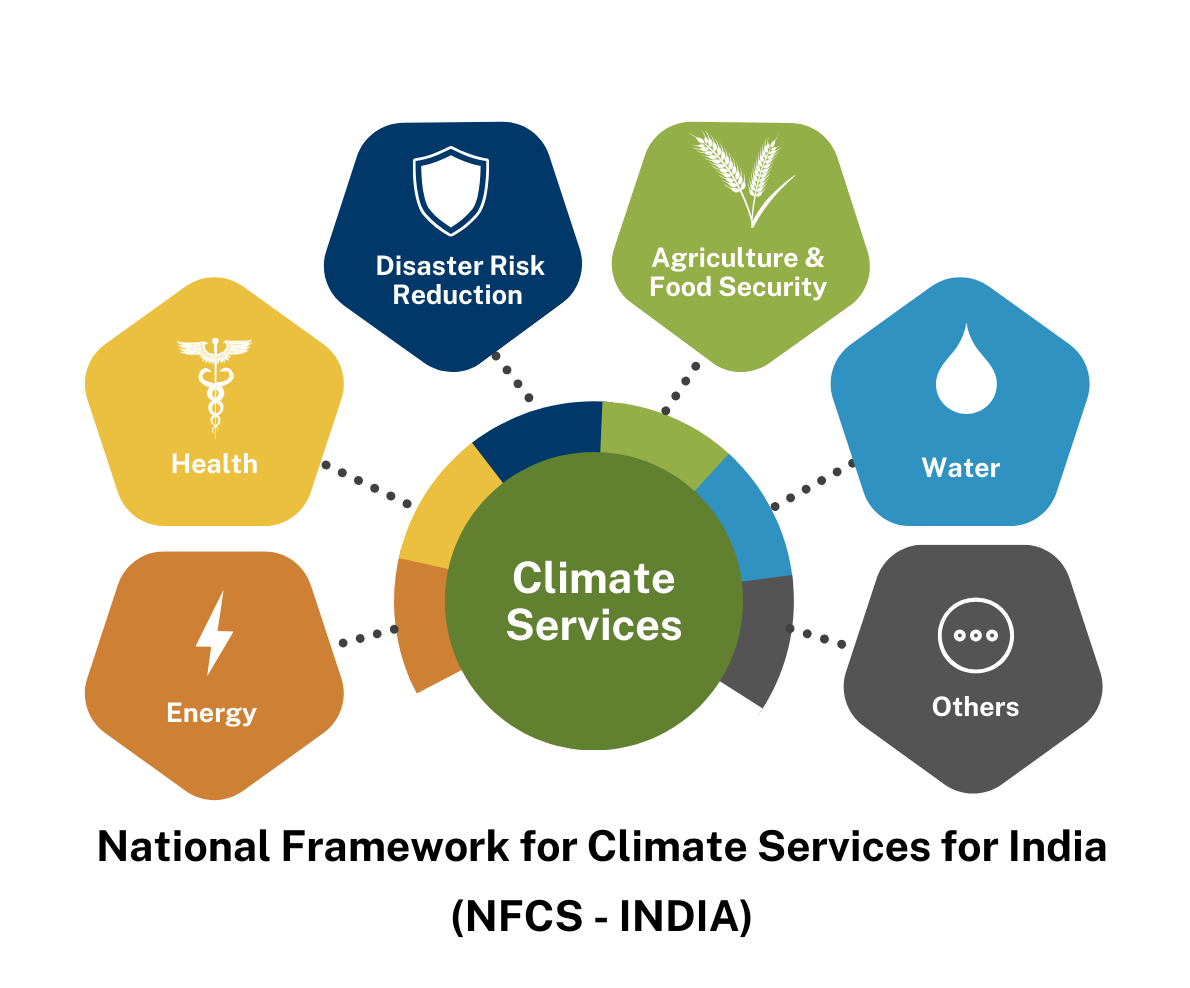- Curtain Raiser - 15th January 2024
- Exhibition 2024: Organized at Vigyan Bhawan
- Commemorative Release
- Exhibition 2025: Walkthrough at Bharat Mandapam
- 150th Foundation Day - 15th January 2025
- State Level Stake holders Workshop
- National Stake holders Workshop
- Popular Lectures by Eminent Personalities
- Major Milestones: Key achievements over 150 years
- Marathon: Run for weather awareness
- Sports: Games fostering team spirit
- Weather & Youth: Engaging and empowering young minds
- Met-Olympiad: Meteorology-based knowledge competition
- Competitions: Challenge yourself
- National & International Workshop at IMD
About GFCS and NFCS - India
For Stakeholder Consultation Workshop on NFCS - India click here
The Global Framework for Climate Services (GFCS), coordinated by the World Meteorological Organization (WMO), has been developed to help all climate services stakeholders to join forces and work together with mutually agreed working arrangements to collectively pursue the common goal of achieving a climate-smart society. India is a founding Member and active co-sponsor of GFCS. Under the auspices of the GFCS, the National Framework for Climate Services in India (NFCS - India) is premised to strengthen the production, availability, delivery and application of science-based climate monitoring and prediction services. The NFCS will help to strengthen the collaborative efforts between various stakeholders for delivering full-value chain climate services in the country. Initial efforts under the proposed NFCS for India are to collaborate with all those agencies to whom IMD is already providing climate services, with a special focus on the five initial priority areas adopted by the GFCS, namely (i) Disaster risk reduction, (ii) Agriculture and food security, (iii) Water resources, (iv) Public health, and (v) Energy.

What the NFCS will do in India:
- Help set up a formal mechanism that may facilitate mutually agreed responsibilities and commitments covering the five pillars of the GFCS and its priority areas, to enable timely and targeted exchange of relevant information;
- Promote improved coordination between service providers and user sectors;
- Create sustainable platforms to enable timely and targeted exchange of climate information leading to significant improvement in the delivery of climate services;
- Facilitate improved understanding of the roles and responsibilities of different agencies in climate-sensitive decision contexts, which will help further customization of services as needed;
- Enable India to lead by example in the global arena, in improving climate services at the national level.